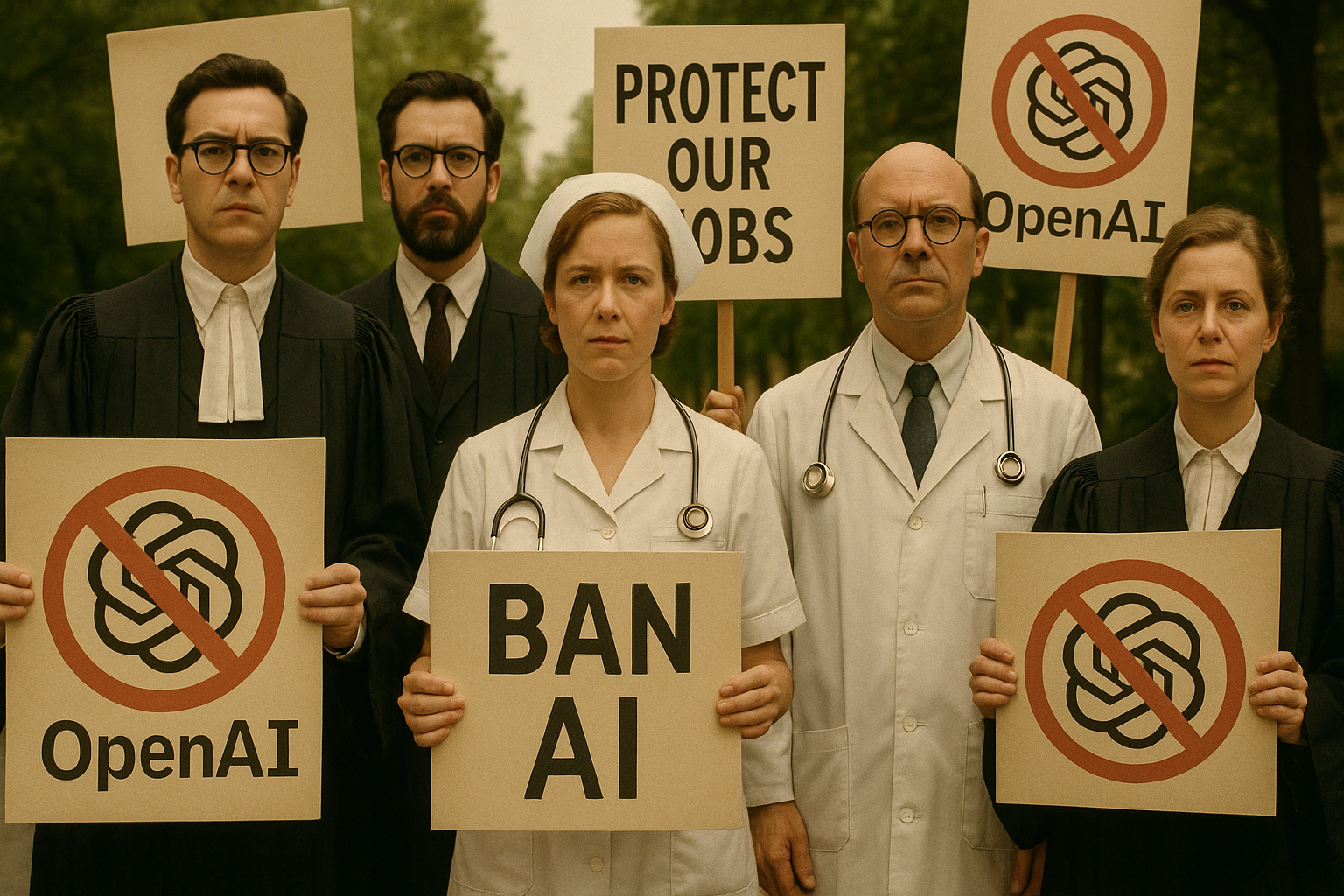On October 29, 2025, OpenAI quietly updated its Usage Policies to further restrict the use of its services in providing tailored medical or legal advice—even in scenarios where the AI’s output could be factually correct and helpful. The company that bragged about its AI passing the USMLE and beating law grads on the bar now insists its systems cannot be used for certain types of advice without oversight, framing it as a safeguard against misuse.
Let’s read the exact words OpenAI includes in the update under “Protect people”:
“provision of tailored advice that requires a license, such as legal or medical advice, without appropriate involvement by a licensed professional”
This prohibition is part of a broader list of disallowed activities, signaling that apps or services built on OpenAI’s tech must involve licensed experts for such content.
The Safety Theater
OpenAI positions these rules as essential for protecting users from harm. Fair enough—nobody wants an AI-powered app misdiagnosing a serious condition. But the policy extends to any “tailored advice,” potentially chilling even benign uses. For instance, an app using ChatGPT to explain a generic fever symptom might now require a doctor’s sign-off, lest it cross into “medical advice.”
The same applies to legal scenarios. Building a tool that interprets a standard lease clause for a user’s specific situation could violate the policy without a lawyer’s involvement. Instead of empowering users, this pushes them back to traditional, costly professionals.
Who Pays the Real Price?
In the United States, 28 million people lack health insurance. Legal-aid waitlists stretch months long. For them, restrictions like this aren’t safeguards—they’re barriers. A single ER visit for a fever can cost $1,200; a 30-minute lawyer consult can run $250. When AI can deliver 95% of the same insight for free, prohibiting its use without “appropriate involvement” by pros isn’t just caution—it’s economic exclusion dressed up as ethics.
OpenAI’s own research shows GPT-4 scores in the 90th percentile on the USMLE and outperforms the average law-school graduate on the Uniform Bar Exam. The model knows the difference between strep throat and a cold, between a material breach and a minor default. Yet the policy demands licensed oversight for tailored applications.
The Monopoly Protection Racket
Gatekeepers have always feared democratized expertise. In 1910, the Flexner Report shuttered half the medical schools in America, consolidating control under an elite cartel. Today, the AMA still lobbies to keep nurse practitioners from practicing independently. Bar associations sue LegalZoom for “unauthorized practice of law.” The pattern is identical: restrict supply, inflate fees, cite “public safety.”
OpenAI’s rules echo that playbook. By requiring “appropriate involvement by a licensed professional” for legal or medical advice, the company isn’t just protecting users—it’s protecting the revenue streams of professions AI threatens. And it’s doing so voluntarily, without a single lawsuit or regulatory mandate forcing its hand.
The Censorship Creep
Start with medical and legal advice, and where does it end? Financial planning? Tax strategy? The policy already extends to prohibiting:
“automation of high-stakes decisions in sensitive areas without human review”
In fields like:
- “financial activities and credit”
- “insurance”
- “legal”
- “medical”
This vague framework could silence AI in everything from 401(k) rollovers to prenups. Each restriction chips away at the original promise of large language models: a personal tutor in your pocket, available 24/7, free of gatekeeper tolls.
A Better Path Exists
Safety and openness aren’t mutually exclusive. Here’s what OpenAI could do tomorrow:
- Tiered Confidence. Flag answers with uncertainty scores. “95% confidence this is viral; 5% chance of bacterial—see a doctor if symptoms worsen.”
- Disclaimer + Detail. Provide the explanation and the caveat, not one or the other.
- Open-Source Guardrails. Let the community audit and improve safety layers instead of imposing top-down bans.
Competitors are already moving in this direction. Anthropic’s Claude will walk you through a lease clause, then remind you it’s not legal advice. Meta’s Llama models, open-weights and runnable locally, have no corporate nanny filter at all.
The Real Danger
The truly unsafe outcome isn’t an AI misdiagnosing a fever—it’s millions of people left uninformed because the only affordable oracle requires licensed gatekeepers. When knowledge becomes a luxury good, society pays the bill in preventable illness, exploitative contracts, and eroded trust.
OpenAI built a machine that can reason like a doctor and argue like a lawyer. Now it’s requiring professional involvement for tailored uses. That isn’t responsibility. It’s surrender to the same monopolies AI was supposed to disrupt.
We don’t need another compliant chatbot. We need one willing to tell the truth—even when the truth threatens the business models of the powerful. Until OpenAI finds that courage, its “safety” policy will remain what it is today: a velvet glove over an iron gate.
